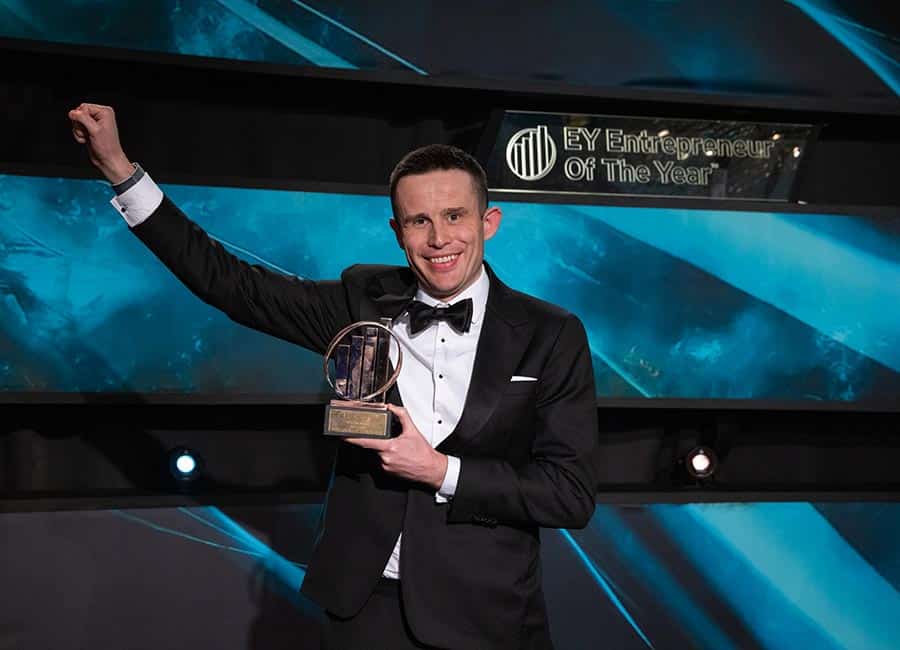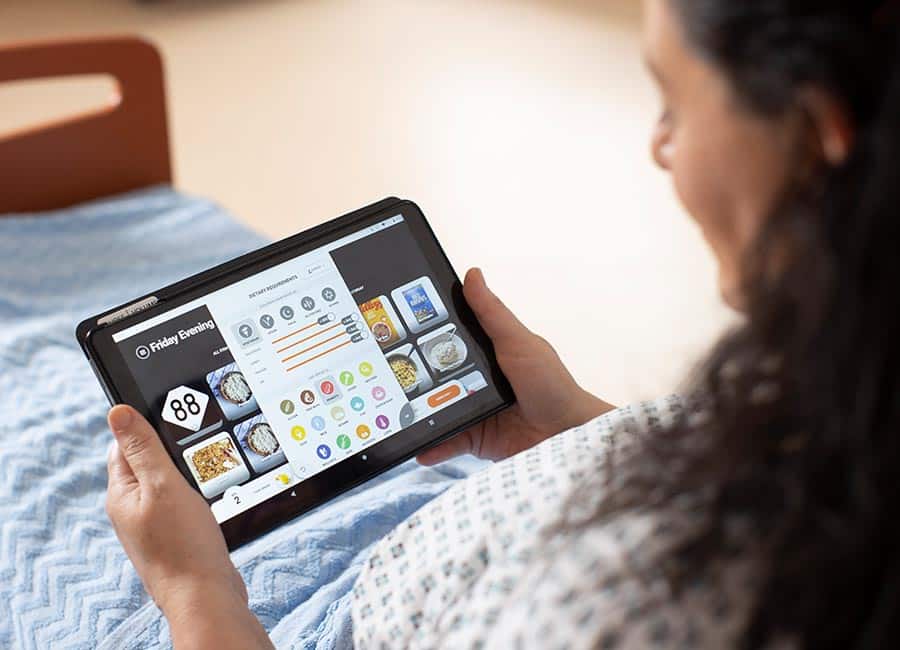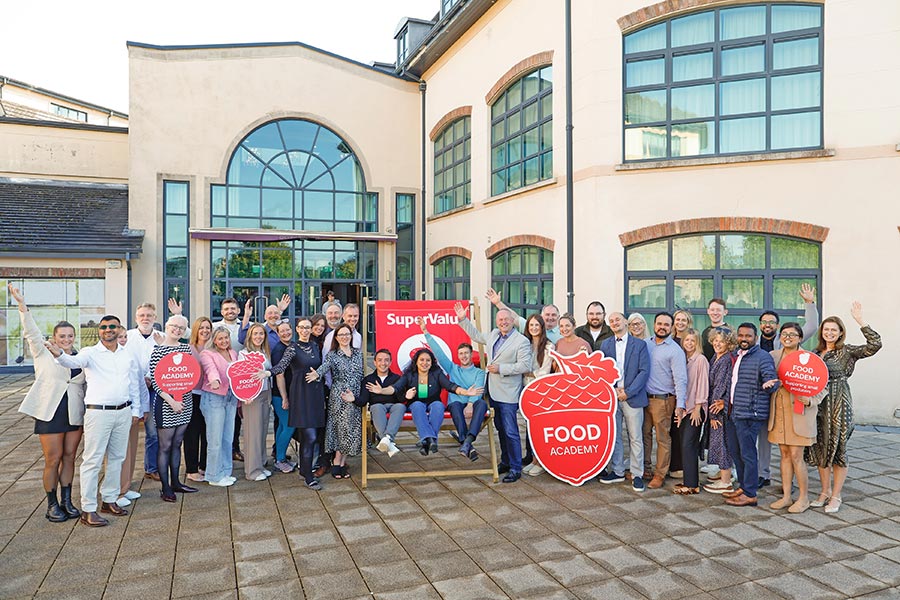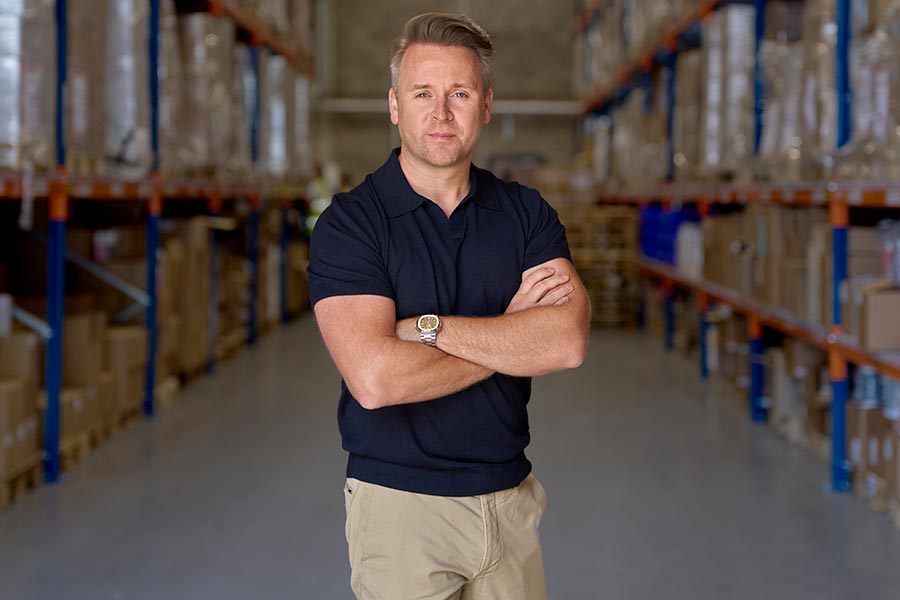While many food businesses scaled back their operations during the pandemic, Irish tech company Nutritics bucked the trend and went into overdrive, writes Gerry Byrne.
When Covid erupted in early 2020, the hospitality, catering and food service industries bore the brunt of a societal shutdown. Worldwide, hundreds of thousands of restaurants and catering establishments closed their doors, often permanently. Millions were furloughed, let go or saw their working hours slashed.
It would make sense that Nutritics, an Irish food tech company that had hitched its star exclusively to that sector, would do likewise or, at the very least, trim the fat and batten down the hatches. It proved otherwise.
Rather than pull in its horns, Nutritics kept everyone on the payroll and went into overdrive. “We call Covid our black swan because it was a once-in-a-lifetime opportunity for us to press pause, then reset and go,” explains CEO Stephen Nolan, a nominee for the EY Entrepreneur Of The Year Award 2022.
“It allowed us access to hospitality decision-makers that we wouldn’t ordinarily be able to reach. People saw that if they introduced our technology now, they would be leaner and stronger when they reopened. Our business caught fire in terms of growth when Covid ended. We had played the long game so that when the world reopened, we were already getting the purchase orders through.”
Nutritics’ product is a digitised interactive database of food, ingredients, menus, recipes, and diets that enables food businesses to plan and analyse their offerings. Not to mention controlling for food allergies and the carbon footprint of almost anything that can be put on a plate. It governs choices about food most cannot even dream of.
Nutritics has been more than a decade in the making. The story started prior to the 2012 London Olympics, for which sports nutritionist Damian O’Kelly had been signed up to provide advice on diets and caloric intakes to the English Institute of Sport, which managed Britain’s Olympic teams. He had already been building a formidable database of dietary facts and figures, aided by his software developer brother, Kieran. He soon realised that what had started as a database to aid his career could become commercialised and sold, not just to sport but also to the catering sector.
It wasn’t something that could be achieved overnight and the O’Kelly brothers, together with Stephen Nolan, whom they had recruited to run their business, set a target of five years for its completion. As the first ever product of its type, there could be no shortcuts. “It was to be something that would help food businesses be safer, more sustainable and more profitable”, remarks Nolan.
In the meantime, as Nolan phrases it, “we had to keep the lights on”. By offering various increments of its product online, Nutritics’ finances were bootstrapped, and its level of profitability remained in flux, with some years leaner than others. But unlike the archetypal tech start-up, they stayed clear of venture capitalists. “VC funding would have changed the strategy and forced us to look for quick-win revenue opportunities. It would have prevented the biggest opportunity of all that we are only unlocking now,” says Nolan.
However, in 2021 the founders did seek expert counsel, in the form of chairman Pat McCann, former CEO of the Dalata Hotel Group, and non-exec director Joe Hogan, founder and former chairman of telco company OpenNet.
In June 2021, Nutritics made its first UK acquisition by buying Ten Kites, a digital menu publisher. The purchase was initially conceived to plug a gap in its own repertoire, but also gave Nutritics a foot in the door to many potential new food business clients. About half of Nutritics’ business is now in the UK, where clients include P&O ferries, Wagamama, Starbucks, the NHS, Manchester City FC and many thirdlevel colleges.

“We doubled the size of that business in the year,” says Nolan. “It’s going really well, and we are very lucky to have it. It really helped our growth in the UK.” The Ten Kites purchase was effected through OK Health Ltd, the Nutritics parent company, and the consideration was a substantial €4.8m, of which €3.3m was contingent on Ten Kites’ future trading. Funding for the deal was sourced from a BDO EIIS fund, which chipped in €2m in April 2021 and another €1m in December 2021.
Pat McCann showed his faith in the venture when purchasing €149,000 of OK Health equity in December 2021, while Joe Hogan has invested €86,000. Earlier this year, an Australian office was opened. Nutritics chose to drive expansion in Australia rather than larger markets such as the US due to the similarities with the UK market.
In the US, Nutritics has a significant contract with Disney. The company has also done business with catering giant Aramark, for which it developed DISH, a worldwide hospital catering platform. DISH improves patient safety by flagging harmful allergens and identifying therapeutic meal options for hospital caterers.
According to Nolan: “We secured those lines without putting too much focus on the US market, so we are really excited about what the US can bring us. First, we want to concentrate on the UK and Australia. We see a massive opportunity in front of us, with over two million restaurants and other food outlets in the UK, US, and Australia, and we only work with a fraction of them.”
Nutritics Ltd booked a loss of €280,000 in the year to June 2021 after making a profit of €410,000 the previous year. Period end trade debtors were €300,000, up from €150,000 a year earlier, and deferred income increased to €920,000 from €630,000, pointing to a healthy increase in trade. Nolan reckons that Nutritics already helps consumers make about five million food decisions every day thanks to its labelling, menus, and other publishing products.
“You not only have the consumer trying to decide between beef or salmon but also wanting to know where that salmon came from,” Nolan explains. “Has it been flown halfway across the world from Alaska, or is it from a local river? There are a lot of elements to the ultimate food decision.”










